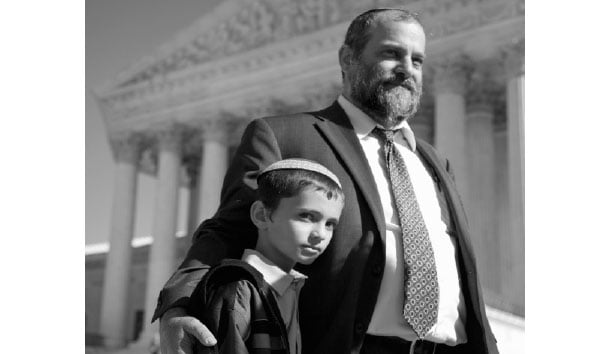In June, the Supreme Court greatly augmented executive power by holding that the president has the exclusive right to grant formal recognition to a foreign sovereign. This decision further pushes presidential power in the direction of royal prerogative through which monarchs enjoy the exclusive care over foreign affairs to the detriment of the people’s representatives.
Zivotofsky v. Kerry dealt with whether an American citizen born in Jerusalem may require the State Department to list “Israel” as the place of birth on his passport. The executive does not accept any state’s claim to sovereignty over Jerusalem. But Congress has enacted a statute providing that,
For the purposes of the registration of birth, certification of nationality, or issuance of a passport of a United States citizen born in Jerusalem, the Secretary [of State] shall, upon the request of the citizen or the citizen’s legal guardian, record the place of birth as Israel.
The Supreme Court held that Congress, via this law, usurped the president’s exclusive prerogative to grant formal recognition to a foreign sovereign. The Court found that the president enjoys this power because the Constitution authorizes him to receive ambassadors, make treaties, and appoint ambassadors. Of course, these latter two powers can only be undertaken with the advice and consent of the Senate. The former was described by Alexander Hamilton in Federalist 69 as “more a matter of dignity than authority,” and “a circumstance which will be without consequence in the administration of the government.”
Some presidents have claimed an exclusive right to the recognition power, but others have understood that the power is shared with Congress. For example, Andrew Jackson and Abraham Lincoln, not known as shrinking violets when exercising power, both believed that Congress shared this authority with the president.
A Court that had less grandiose visions of itself would not have weighed in on the exclusivity claims, and would have left these issues to the elected branches. This would have been easy to do. The birthplace specification on passports has little to do with diplomatic recognition. As pointed out by Justice Scalia in dissent, it instead “promotes the document’s citizenship-authenticating function by identifying the bearer, distinguishing people with similar names but different birthplaces from each other.”
Moreover, Congress has the enumerated power to establish uniform rules of naturalization. This grant allows it, rather than the president, to furnish people it recognizes as American citizens with papers verifying citizenship, such as consular reports of birth abroad or passports for international travel.
It strains credibility to believe that the notation of birth in Israel on Zivotofsky’s passport somehow equates to a formal declaration of Israeli sovereignty over Jerusalem or encumbers the United States with international obligations. In the words of Justice Scalia, “[f]inding recognition [in a statute about passports] is rather like finding admission to the Union in a provision that treats American Samoa as a State for purposes of a federal highway safety program.”
So why would the Court for the first time in history accept the President’s direct defiance of an act of Congress in the field of foreign affairs? To affirm its own power.
Rather than holding that this issue is a nonjusticiable political question left to the elected branches, the Court further elevates its own status as final arbiter of the Constitution. The High Court reached out to strike down a statute on the grounds that the Congress is exercising a prerogative that belongs to the president. In doing so, the Court reaffirms its position as an unelected policymaking body.
“Put simply,” the Court tells us, “the Nation must have a single policy regarding which governments are legitimate in the eyes of the United States and which are not.” The United States must speak with “one voice,” and “that voice must be the President’s.” The Court might be correct that the president or a king is more effective in the area of foreign affairs than a legislature. But this runs counter to the careful effort by the Framers of the Constitution to give Congress a role in foreign affairs and to ensure the president would not resemble the British monarch.
The Court has decided that its policy decision is better than that of the Framers of the Constitution and the states that ratified it. It aggrandizes the executive at the same time that it aggrandizes itself.

Leave a Reply